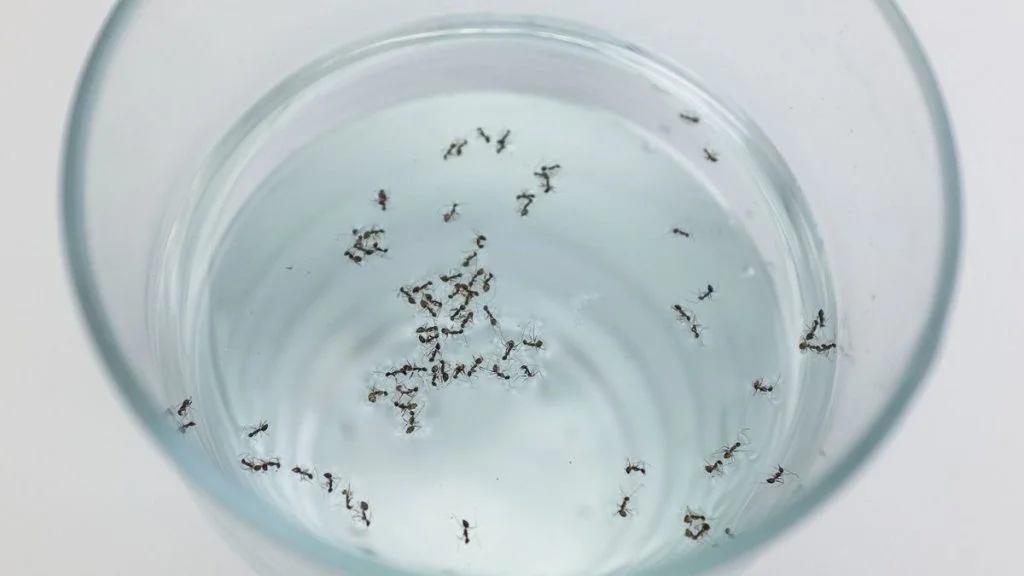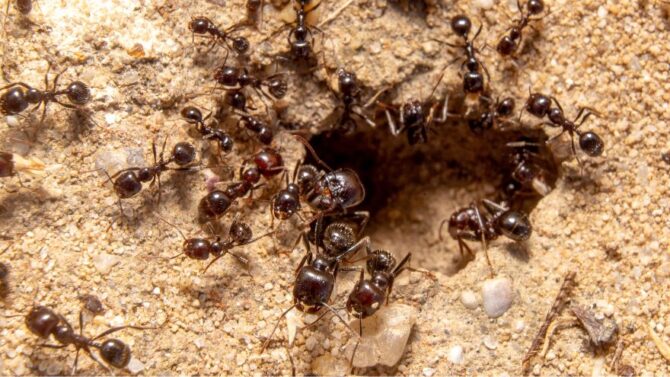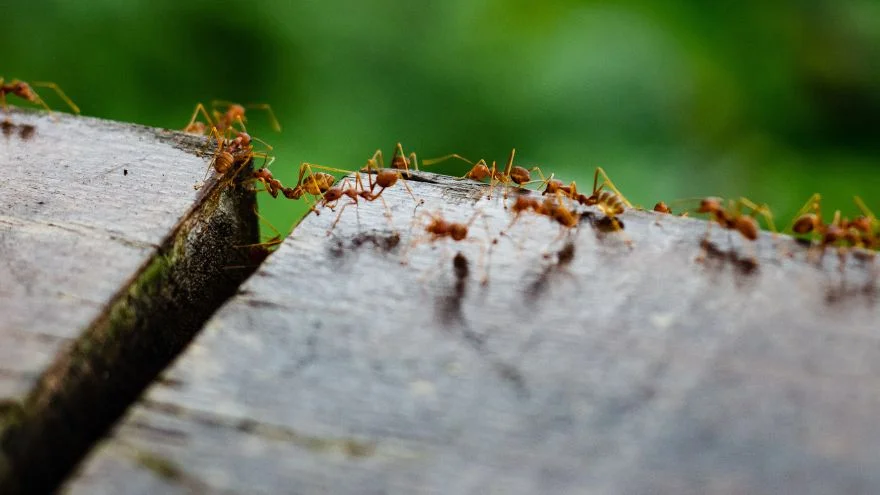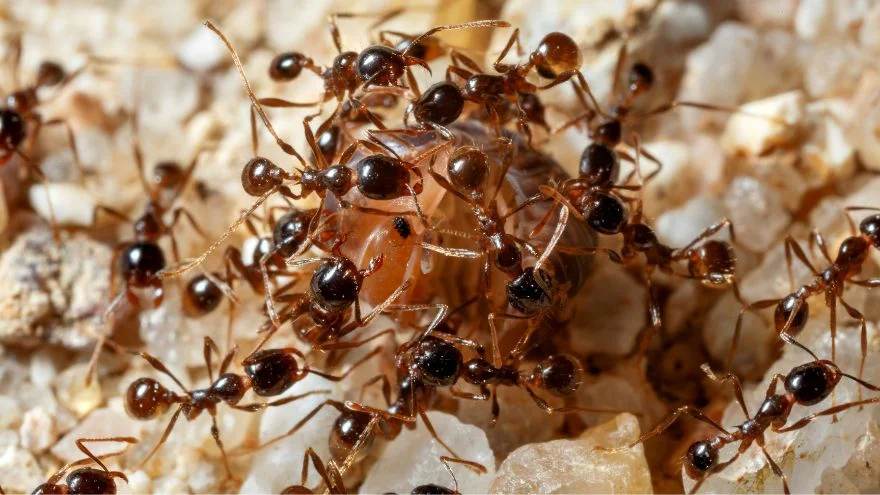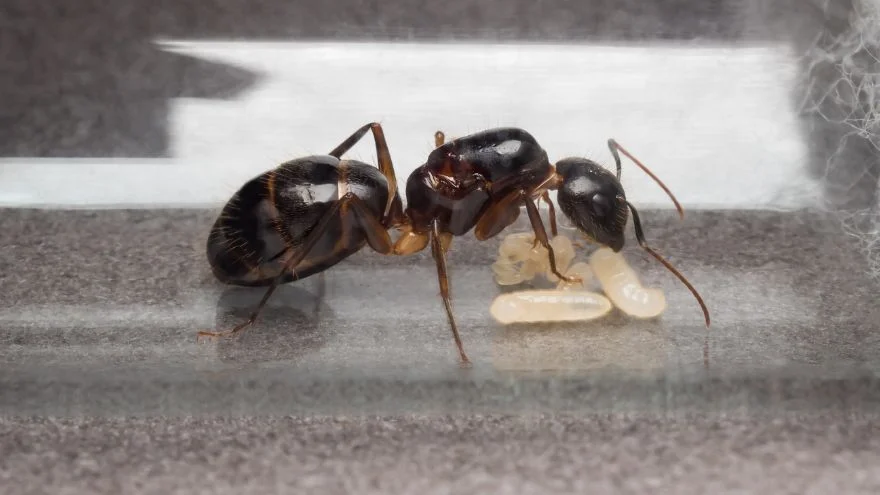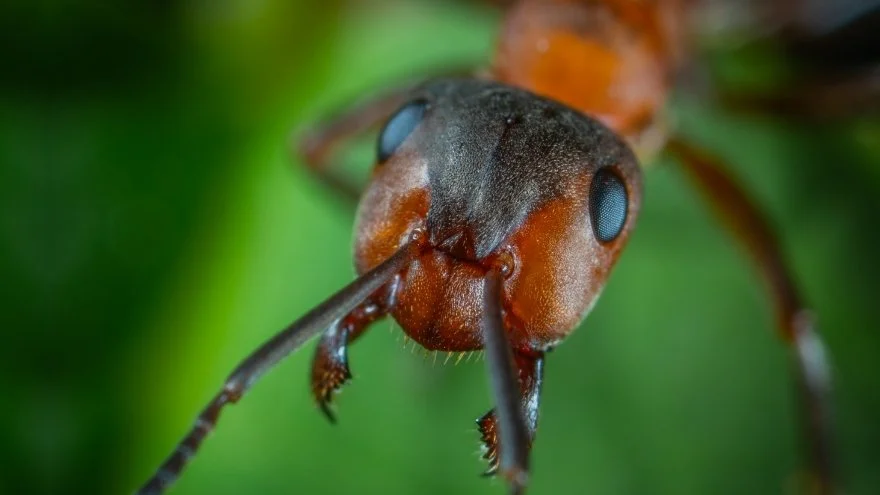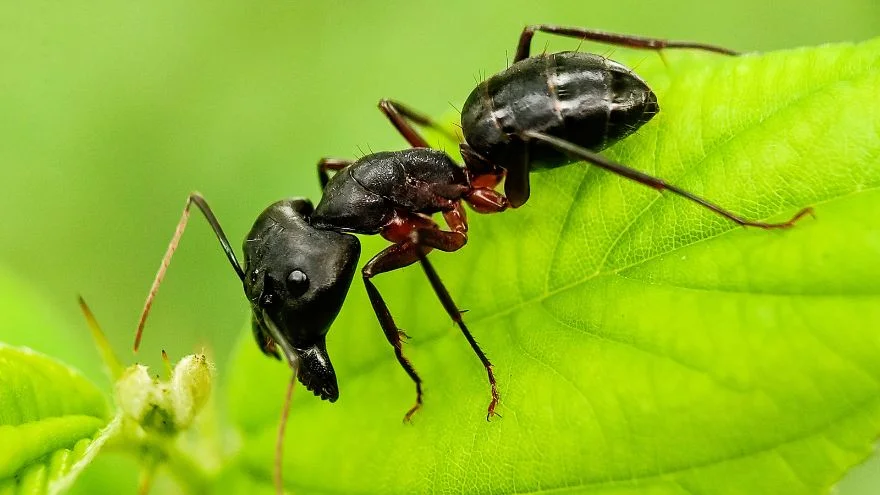Most ants are bad swimmers who also need oxygen to survive, and if they get into the water, they won’t be able to save themselves.
Although ants can’t swim and there’s a high possibility of them dying by drowning, they can also stay in water for a while without drowning, which is dependent on several reasons.
Many people try to get rid of ants by drowning them, but do ants drown in water?
Ants will drown in water if submerged for a long time. Their legs are too small to generate enough force to swim, and if they penetrate the surface tension of water, they’ll drown because their tiny bodies are not enough to push them back up.
This article will answer the question, “can ants drown in water?” and give reasons why this method is not always practical. Read on to find out.
Do Ants Drown In Water? (And Reasons)
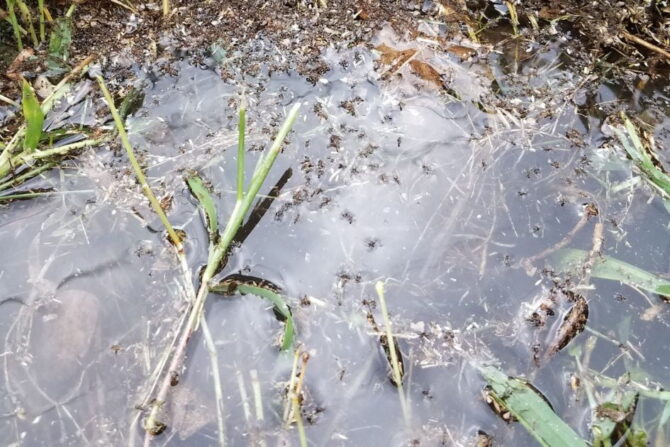
Though ants have a slow metabolism that lets them stay a long time without oxygen, unlike humans, they still need it to function.
Staying underwater will require them to close their spiracles (series of holes on their sides), which is a unique way of holding their breath.
And if they remain underwater for hours longer than usual, there’s a huge chance of drowning.
Here are some reasons why ants will drown in water:
They have small bodies
Ants have small bodies that cannot penetrate the surface tension of water.
Hence they float for a while, but if, at any point, this surface tension is broken and they get into the water, they won’t be able to push themselves back onto the surface and then drown.
In situations with soapy water, ants do not stand a chance to float; they drown immediately due to the least surface tension it has.[1]
Ants don’t know how to move about in the water. They can try a “doggy paddle,” but asides from that, they don’t have any other skill to swim in water (there are exceptions to this, though).
They can’t survive underwater for too long
There is a limit to how long ants can stay without getting air. If it exceeds this time limit, the ant will drown.
How Long Can Ants Hold their Breath to Survive in Water?
When ants get caught in a body of water, the first thing they do is hold their breath.
They do this by closing their spiracles, so water doesn’t get into their tubes, which they utilize to distribute oxygen to their cells and enable carbon dioxide to leave their bodies.
Though some ants can survive longer without oxygen, the breath-holding capacity for most ant species is a minimum of 24 hours, while others can stay up to 14 days, after which they’ll drown and die off.
Are there Ants that Can Survive in Water?
Yes, some ant species can survive in water for a while, longer than other ants will.
These ants have devised ways to stay afloat on the water, giving them more advantages of not drowning like most ant species.
Fire and diving ants are examples of ants that will survive in water. They have special skills that enable them to adapt to life on the water.
Fire Ants
Fire ants (Solenopsis spp) use their legs and mouths to weave a waterproof raft, which, when submerged in water, pops back up to the surface and enables the ants to float.
A raft is like a lifeboat that helps fire ants survive floods.
They can remain on this raft for several weeks without drowning, provided they come to dry land soon enough.
This is because, in water, they are most likely to face a lot of danger from predators like fish.[2,3]
Diving Ants
Diving ants (scientifically known as the Camponotus schmitzi) are unique amongst all other ants as they can swim and dive in the water.[4,5]
They belong to the species of Carpenter ants with a unique skill that can make them penetrate a water body without drowning.[6]
Unlike others, these ants know how to move their legs in liquids.
Can you Kill Ants by Drowning Them in Water?
It takes a long time for ants to die in normal water but switch things up and add a few drops of dishwashing liquid in water and see how quickly the ants drown.
Ants will float on regular water because they cannot break the surface tension of water.
But when it’s soapy water with its surface weakened, the ants will fall through and drown as swimming is not one of the many strengths of most ants species.
If soap water gets into an ant’s body, it will suffocate it by blocking its spiracles and killing it off afterward.
Using the soap water technique is an excellent way of drowning ants.
However, studies have shown that no matter how effective this method is, it won’t eliminate all ants as some will find a way to escape.
Can Ants Survive in Hot Water?
If water is heated to an increased temperature of 150°F and above and poured directly into the ants’ nests, it will kill and drown some of them instantly.
However, this is not a practical way of getting rid of the ants.
Besides, using this technique inside your home to eliminate ants may destroy more than just the ants.
Best Way to Get Rid of Ants Completely
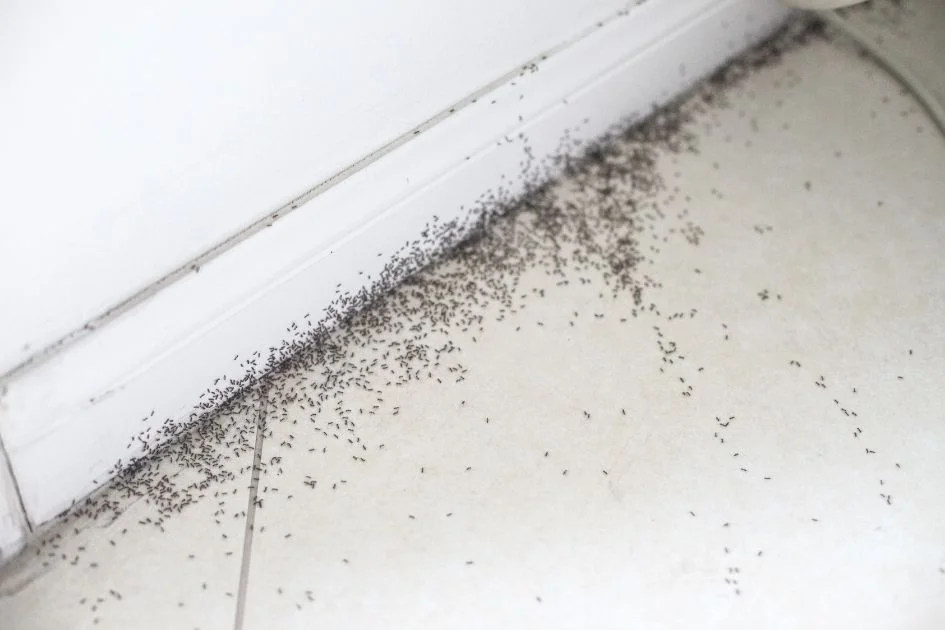
Since we now know that just pouring regular or soapy water on ant nests is not efficient in getting rid of these insects, what then should be done to stop the infestation and prevent future re-infestation?
The most effective way to eliminate ants in and around your home is to get a pest controller to do the job.
They will find and destroy all the ant sources and colonies and ensure your house is protected from another invasion.
Conclusion: Can Ants Drown in Water?
Ants can drown in water, but they can also survive hours, days, and weeks because of their ability to float on water due to their small bodies that can’t break the surface tension of water.
A few ant species like the diving and fire ants have developed mechanisms and skills to make themselves buoyant on water.
But they too are at the risk of drowning if water ever gets into their bodies.
Check out these interesting articles:
References & Notes
- “Why Does Soap Decrease Surface Tension?” https://www.reference.com/science/soap-decrease-surface-tension-72b96511d4b2f70e
- “How Ants Survive Flooding by Forming Giant Rafts,” https://www.nationalgeographic.com/animals/article/151006-fire-ants-rafts-south-carolina-flooding
- “Question Corner: How fire ants float,” https://www.thehindu.com/sci-tech/science/how-fire-ants-float/article32249027.ece
- https://www.researchgate.net/figure/Swimming-and-diving-behavior-of-Camponotus-schmitzi-ants-in-Nepenthes-bicalcarata_fig1_224819136
- “Ants swimming in pitcher plants: kinematics of aquatic and terrestrial locomotion in Camponotus schmitzi,” Holger Florian Bohn et al. J Comp Physiol A Neuroethol Sens Neural Behav Physiol. 2012 Jun, https://pubmed.ncbi.nlm.nih.gov/22526112/
- https://www.cambridge.org/core/journals/journal-of-tropical-ecology/article/abs/plantant-camponotus-schmitzi-helps-its-carnivorous-hostplant-nepenthes-bicalcarata-to-catch-its-prey/2614230227FECBFE54D41631BCC4A1A0
Featured Image Credit: Waleed Alzuhair/Flickr (CC BY-NC-SA 2.0)
